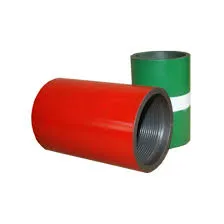- Afrikaans
- Albanian
- Amharic
- Arabic
- Armenian
- Azerbaijani
- Basque
- Belarusian
- Bengali
- Bosnian
- Bulgarian
- Catalan
- Cebuano
- Corsican
- Croatian
- Czech
- Danish
- Dutch
- English
- Esperanto
- Estonian
- Finnish
- French
- Frisian
- Galician
- Georgian
- German
- Greek
- Gujarati
- Haitian Creole
- hausa
- hawaiian
- Hebrew
- Hindi
- Miao
- Hungarian
- Icelandic
- igbo
- Indonesian
- irish
- Italian
- Japanese
- Javanese
- Kannada
- kazakh
- Khmer
- Rwandese
- Korean
- Kurdish
- Kyrgyz
- Lao
- Latin
- Latvian
- Lithuanian
- Luxembourgish
- Macedonian
- Malgashi
- Malay
- Malayalam
- Maltese
- Maori
- Marathi
- Mongolian
- Myanmar
- Nepali
- Norwegian
- Norwegian
- Occitan
- Pashto
- Persian
- Polish
- Portuguese
- Punjabi
- Romanian
- Russian
- Samoan
- Scottish Gaelic
- Serbian
- Sesotho
- Shona
- Sindhi
- Sinhala
- Slovak
- Slovenian
- Somali
- Spanish
- Sundanese
- Swahili
- Swedish
- Tagalog
- Tajik
- Tamil
- Tatar
- Telugu
- Thai
- Turkish
- Turkmen
- Ukrainian
- Urdu
- Uighur
- Uzbek
- Vietnamese
- Welsh
- Bantu
- Yiddish
- Yoruba
- Zulu
Well Casing Extension Coupling Solutions for Enhanced Drilling Performance and Efficiency
Well Casing Extension Coupling Enhancing Oil and Gas Drilling Efficiency
In the oil and gas industry, the efficiency and integrity of drilling operations are paramount to the success of any project. One crucial component that plays a significant role in this context is the well casing extension coupling. As drilling depths increase and the need for more complex well designs emerges, the importance of robust and reliable casing systems cannot be overstated.
A well casing serves as a protective sheath that lines the borehole, providing structural stability and preventing the collapse of the well. It protects the freshwater aquifers from contamination and supports the integrity of the well itself. However, as drilling progresses to greater depths and through more challenging geological formations, the need for extending existing well casings becomes essential. This is where casing extension couplings come into play.
What is a Casing Extension Coupling?
A casing extension coupling is a specialized piece of equipment designed to connect two sections of casing together, allowing for the drilling operation to extend further into the subsurface. These couplings are specifically engineered to withstand the high pressures and temperatures encountered at depth, ensuring that the casing remains intact and functional.
Constructed from high-strength materials, these couplings come in various sizes and configurations to accommodate different casing designs and drilling environments. The primary aim of these couplings is to provide a seamless transition between existing casing and new sections, minimizing the risk of leaks and structural failures.
Benefits of Using Casing Extension Couplings
well casing extension coupling

1. Enhanced Structural Integrity Casing extension couplings reinforce the overall structural integrity of the well, allowing for deeper drilling without compromising safety. Their robust design helps to manage the stresses imposed by the surrounding geological formations and the column of fluid within the well.
2. Improved Drilling Efficiency By facilitating the extension of well casings, these couplings enable drilling teams to reach deeper reservoirs more efficiently. This can lead to reduced drilling times and costs, ultimately making operations more profitable.
3. Versatility Casing extension couplings can be designed to suit a variety of casing types and sizes, making them a versatile solution across different projects and drilling environments. Whether dealing with vertical, horizontal, or deviated wells, these couplings can be tailored to meet the specific needs of the operation.
4. Reduced Risk of Contamination Maintaining well integrity is crucial for preventing contamination of groundwater sources. Casing extension couplings help ensure that the casing remains intact, thus reducing the risk of fluid migration and protecting the surrounding environment.
5. Ease of Installation Modern casing extension couplings are designed for quick and easy installation, which helps minimize downtime during drilling operations. This aspect is particularly important in the fast-paced environment of oil and gas exploration, where time is often of the essence.
Conclusion
In conclusion, well casing extension couplings are an essential component in the ongoing quest for efficient and safe oil and gas drilling. As the industry faces the challenges of deeper drilling and complex well designs, the importance of reliable coupling systems will only continue to grow. By providing enhanced structural support, improving drilling efficiency, and maintaining environmental integrity, casing extension couplings play a vital role in the sustainability and success of oil and gas operations. Investing in high-quality coupling solutions is not merely a technical choice but a strategic necessity for the energy sector.
-
Well Casing Extension Couplings – Applications and InstallationNewsJun.06,2025
-
Types of Crossover Subs in Drilling & CompletionNewsJun.06,2025
-
Key Features of High-Quality Tubing Pup JointsNewsJun.06,2025
-
Installation and Maintenance Tips for Steel Couplings for PipeNewsJun.06,2025
-
How to Select the Right Pup Joint for Oil & Gas OperationsNewsJun.06,2025
-
Applications of Stainless Steel Pipe CouplingsNewsJun.06,2025







